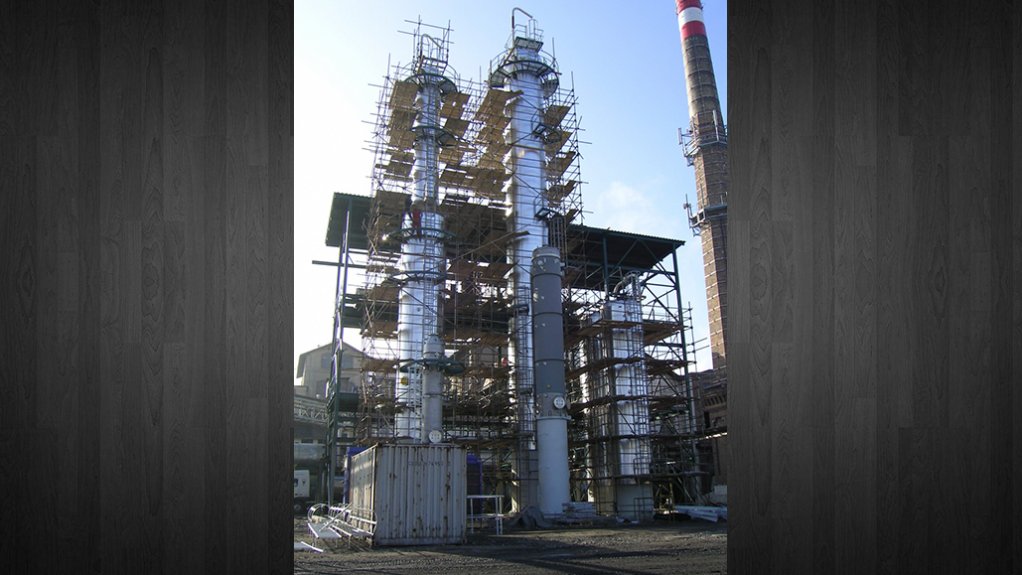Work-at-height industry facing uncertainty as training standards expire




CERTIFICATION SHORTAGE This potential shortage could result in a deceleration of project execution and leave workers without the necessary certifications
WORKER SAFETY Employers must take all reasonable and practical measures to ensure that their workers are competent and safe
INDUSTRY ADVOCATE The IWH has played a crucial role in addressing industry issues since 2012
The South African work-at-height industry, which has relied for years on National Qualifications Framework (NQF) unit standards to provide proper training programmes, now faces a critical challenge following the expiration of these standards at the end of June 2023.
Professional body Institute for Work at Height (IWH), however, promptly developed new skills programmes to fill the void, but its efforts were halted as the Department of Employment and Labour (DEL) has yet to accept these initiatives, says IWH CEO Dr Alti Kriel, adding that the DEL has indicated that “they are now responsible for the skills programmes”.
However, considering that the NQF Act of 2009 was amended to exclude the Labour Minister from any duties regarding the Quality Council for Trades and Occupations (QCTO), Kriel notes that “the DEL is not sure how this should be handled”.
She laments that, despite formal communication expressing the IWH’s willingness to collaborate, the institute had, at the time of writing, received only a verbal response.
In South Africa, all forms of working at height have long been considered high-risk activities. To protect workers engaged in such tasks, regulations have been put in place, including the Construction Regulations (2014) and the Driven Machinery Regulations (2015).
These regulations, along with the new Ergonomic Regulations, define "competence" as being properly trained, skilled and experienced, with specific emphasis on the relevance of NQF unit standards.
The IWH, recognised by the South African Qualifications Authority, has played a crucial role in addressing industry issues since 2012. The organisation has developed regulated skills programmes, ensured quality assurance and issued certifications for work-at-height occupations.
The institute has also been actively promoting continuing professional development to update and upskill workers regularly.
The IWH has benchmarked its skills programmes with international bodies, forging memoranda of understanding with organisations such as the UK’s Prefabricated Access Suppliers’ and Manufacturers’ Association and the Ladder Association.
However, despite the IWH’s efforts, the uncertainty surrounding the replacement of the expired unit standards is “causing considerable concern within the industry”.
Although training providers can still use the unit standards until the end of June 2024, the issue arises with new providers who will not receive accreditation from the sector education and training authorities (Setas), adds Kriel.
The work-at-height industry is, therefore, facing a crisis, as providers are unable to extend their training scope, new assessors and moderators cannot be registered, and quick certification is in high demand.
“This situation has created a disaster, leaving workers unable to receive proper training for new projects and contracts, leading to delays and inefficiencies. The slow pace of the Setas has also given rise to 'bogus' training providers, further compromising the quality of training,” Kriel says.
“The absence of regulated training may lead to unscrupulous training providers taking advantage of the situation by offering inadequate or fraudulent programmes without any quality oversight. This poses a risk to worker safety and the reputation of the industry.”
She declares that “urgent action is needed to address these issues, ensuring [that] workers can quickly return to the workplace with the required competence and safety standards”.
According to Kriel, the industry may encounter a scarcity of accredited trainers, assessors and moderators if current providers cease their operations.
This potential shortage could result in a deceleration of project execution and leave workers without the necessary certifications. Kriel emphasises the substantial impact of this regulatory gap, especially considering that the IWH has already certified more than 115 000 workers.
Of this 115 000, some have been recertified and some will need to be recertified in the near future, while others have left the industry, the IWH comments.
Ensuring Worker Safety
Companies are now facing potential liabilities in the event of accidents, though the IWH insists that employers must take all reasonable and practical measures to ensure that their workers are competent and safe, and they are prepared to face legal action if necessary.
The IWH is eager to work closely with the DEL to ensure safe working practices for all workers engaged in tasks at height, Kriel notes.
However, the recognition of the IWH by authorities and non-member companies remains a key challenge.
Kriel points out that the IWH, being a nonprofit organisation, depends on the backing of its member companies to maintain its functioning.
As more companies lend their support to the IWH, it becomes possible to reduce membership fees, thereby making their services available to a wider range of participants in the industry.
“Ultimately, the IWH’s mission and actions are driven by the needs of the industry and its members. The IWH plays a vital role in ensuring worker safety and competence in the work-at-height sector and will continue to advocate for the industry's interests,” Kriel concludes.
Comments
Press Office
Announcements
What's On
Subscribe to improve your user experience...
Option 1 (equivalent of R125 a month):
Receive a weekly copy of Creamer Media's Engineering News & Mining Weekly magazine
(print copy for those in South Africa and e-magazine for those outside of South Africa)
Receive daily email newsletters
Access to full search results
Access archive of magazine back copies
Access to Projects in Progress
Access to ONE Research Report of your choice in PDF format
Option 2 (equivalent of R375 a month):
All benefits from Option 1
PLUS
Access to Creamer Media's Research Channel Africa for ALL Research Reports, in PDF format, on various industrial and mining sectors
including Electricity; Water; Energy Transition; Hydrogen; Roads, Rail and Ports; Coal; Gold; Platinum; Battery Metals; etc.
Already a subscriber?
Forgotten your password?
Receive weekly copy of Creamer Media's Engineering News & Mining Weekly magazine (print copy for those in South Africa and e-magazine for those outside of South Africa)
➕
Recieve daily email newsletters
➕
Access to full search results
➕
Access archive of magazine back copies
➕
Access to Projects in Progress
➕
Access to ONE Research Report of your choice in PDF format
RESEARCH CHANNEL AFRICA
R4500 (equivalent of R375 a month)
SUBSCRIBEAll benefits from Option 1
➕
Access to Creamer Media's Research Channel Africa for ALL Research Reports on various industrial and mining sectors, in PDF format, including on:
Electricity
➕
Water
➕
Energy Transition
➕
Hydrogen
➕
Roads, Rail and Ports
➕
Coal
➕
Gold
➕
Platinum
➕
Battery Metals
➕
etc.
Receive all benefits from Option 1 or Option 2 delivered to numerous people at your company
➕
Multiple User names and Passwords for simultaneous log-ins
➕
Intranet integration access to all in your organisation





















